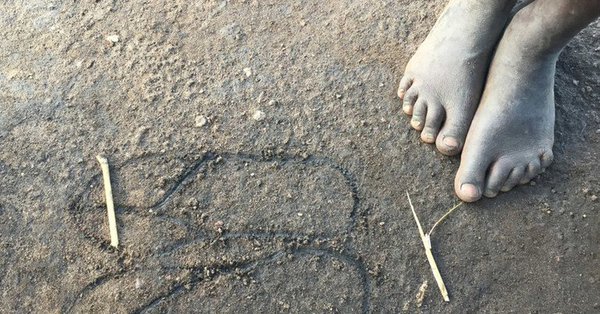
South Sudanese refugees need $2.7 billion, as safe return remains elusive
New York, Dec 19 (IBNS): The UN Refugee Agency (UNHCR) launched a $2.7 billion appeal on behalf of South Sudanese refugees on Tuesday, to address Africa’s largest displacement crisis, where millions have been uprooted by years of brutal civil war.
Widespread fighting across the world’s youngest country began in 2013 between forces loyal to the President, Salva Kiir, and his Vice-President, Riek Machar, following the country’s declaration of independence from its northern neighbour in 2011.
Hundreds of thousands of people are believed to have been killed in the fighting which has been accompanied by a shocking level of human rights abuses – more than 65 per cent of women and girls in the country have experienced sexual violence, according to UN-appointed rights experts.
“The issue here is that there have been previous attempts at cultivating peace that have not withstood” the test of time, UNHCR spokesperson Charlie Yaxley told journalists in Geneva, before appealing to the warring parties to respect the latest peace agreement, signed in September, which envisages elections in 2022 and the return of Machar as one of five vice-Presidents.
Conditions ‘not yet conducive’ to refugees’ return
Although there has been a “relative reduction in violence” in parts of the country since September, Yaxley added that UNHCR “does not yet view the current environment in South Sudan as being conducive” for the safe return of refugees.
“Children too have in many cases experienced extreme violence and trauma, including the death of one or both parents,” he added, noting that many are now primary caregivers for younger siblings and “thousands” have also been forcibly recruited as child soldiers by armed groups.“Many women have reported rape and other forms of sexual and gender-based violence, along with the killings of their husbands and the abduction of children during flight,” the UNHCR official said.
Earlier this month, UN Secretary-General António Guterres condemned a series of brutal sexual assaults on women and girls on the road to the northern town of Bentiu.
According to the UN mission there, some 125 women and girls sought treatment after being sexually assaulted - horrific acts that are a “distressing reminder” of how, despite recent recommitments by the country’s leaders to stop fighting, the security situation for civilians remains dire, Guterres said.
More than 2.2 million South Sudanese are now refugees in six neighbouring countries - Uganda, Sudan, Ethiopia, Kenya, the Democratic Republic of the Congo (DRC) and Central African Republic (CAR) – and another 1.9 million have been uprooted from their homes inside their country.
Although UNHCR commended the generosity of host countries in keeping their borders open to South Sudanese nationals, in some places, rations have had to be cut, as levels of funding “have been far outpaced by rising needs”, Yaxley said.
“In Sudan, some refugees and their host communities are having to survive on just five litres of water per person per day, inevitably leading to tensions,” he explained. “Schools are lacking teachers, classrooms, and educational materials leaving half of South Sudan’s refugee children out of school. Health clinics have insufficient doctors, nurses and medications.”
In an appeal for “hugely more international support”, Yaxley noted that this year’s humanitarian appeal – which also covers its partners in the field – has been funded at only 38 per cent.
Priorities for UNHCR include the promotion of social cohesion programmes for refugees and their hosts “to ensure the ongoing viability” of both communities living together. “In any refugee situation, it is vital that both communities are helped,” Yaxley said.
Support Our Journalism
We cannot do without you.. your contribution supports unbiased journalism
IBNS is not driven by any ism- not wokeism, not racism, not skewed secularism, not hyper right-wing or left liberal ideals, nor by any hardline religious beliefs or hyper nationalism. We want to serve you good old objective news, as they are. We do not judge or preach. We let people decide for themselves. We only try to present factual and well-sourced news.







